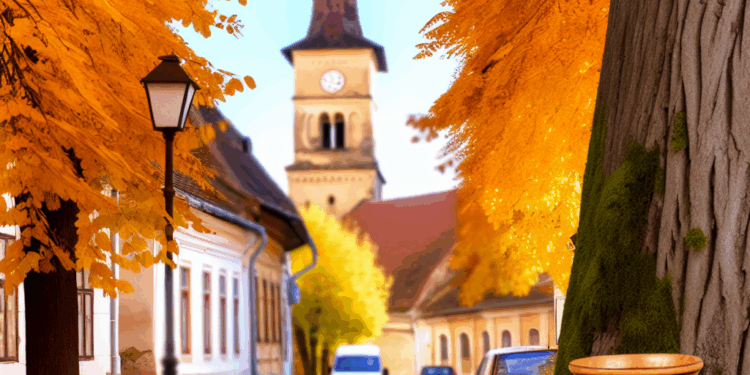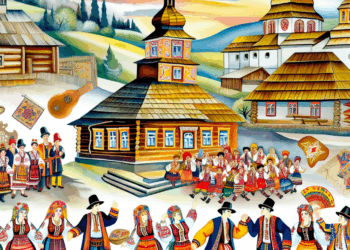Introduction
The autumn of 2023 was a significant time for Romania, especially in the context of discussions on the history, culture and language of Bukovina, a historical region at the crossroads of several peoples and cultures. In this article, we will examine the historical aspects of this region, its cultural heritage, linguistic features, as well as current debates on the justice and prospects of Bukovina’s reunification with Romania.
Historical context of Bukovina
Origin of the name and early history
Bukovyna, which means “buk” (tree) in Ukrainian, has been inhabited since ancient times. Archaeological finds testify to the presence of people here since the Neolithic Age. The period of Roman and subsequent Dacianisation contributed to the multi-ethnic composition of the region.
Influence of the Ottoman and Austrian empires
Since the XVI century Bukovyna entered the sphere of influence of the Ottoman Empire, but already in the XVIII century it was annexed to the Habsburg monarchy. This was the beginning of an intensive cultural exchange, which had a significant impact on the language and culture of the region. Under Austrian rule, schools, hospitals and roads were built in Bukovina, which contributed to the development of infrastructure and education.
Establishment of borders and overlapping historical conflicts
After World War I and the formation of the Romanian Kingdom, Bukovina became part of Romania, but this situation changed dramatically after World War II, when much of the region fell to the Soviet Union. These events contributed to the formation of complex ethnic and political boundaries that are still relevant today.
Culture and language of Bukovina
Multilingualism of the region
Bukovina has a unique linguistic and cultural diversity. Romanians, Ukrainians, Jews, Moldovans and other ethnic groups live here. The main languages spoken in the region are Russian, Ukrainian, Romanian and Moldovan. This linguistic palette reflects the diversity of cultural traditions and customs.
Traditions and folklore
The cultural heritage of Bukovina includes rich traditions, evidenced by folk festivals, dances, music and cuisine. Folk art is preserved in the form of songs, dances and oral history. One of the brightest representatives of Bukovyna folklore is the folklore society “Dumka”, actively preserving folk traditions through music and dance performances.
Religious identity
Religion also plays an important role in the cultural life of the region. The majority of the population is Orthodox Christian, but representatives of other religions also live here, which creates a unique atmosphere of coexistence. Important religious holidays that strengthen local identity are Christmas and Easter.
Issues of historical justice
Data on violence and repression
Contemporary discussions about justice in Bukovina emphasise the historical traumas resulting from political repression and ethnic cleansing that occurred in the 20th century. An important aspect is the recognition of the suffering experienced by local people in different historical periods.
The role of politics in restoring historical justice
Issues of distortion of historical truth are also addressed in contemporary Romanian and Ukrainian debates. Certain government initiatives aim to recognise and respect historical events such as deportations, forced assimilation and repression of local populations.
Prospects for reunification with Romania
Public sentiment
The issue of Bukovina’s possible reunification with Romania is influencing public opinion. Some activists support the idea of reunification to improve social and economic conditions, while others are in favour of preserving autonomy and cultural identity.
Political and legal aspects
The legal and political processes governing territorial integrity are an important factor. Romania and Ukraine are on different political paths, and any changes in borders may require changes to international agreements and treaties.
Recommendations for dialogue
In order to improve relations between the two countries, an open dialogue is needed to address the cultural and social interests of the people living in Bukovina. It is important to recognise and respect the cultural diversity of the region and to find compromises on issues of territoriality.
Conclusion
Autumn 2023 in Romania becomes a time for meaningful analysis of the history, culture and language of Bukovina. Issues of justice and the prospect of the region’s reunification with Romania raise relevant discussions that require respect for history and culture. It is important to continue dialogue based on mutual understanding and respect, which can have a positive impact on the future of the region.








